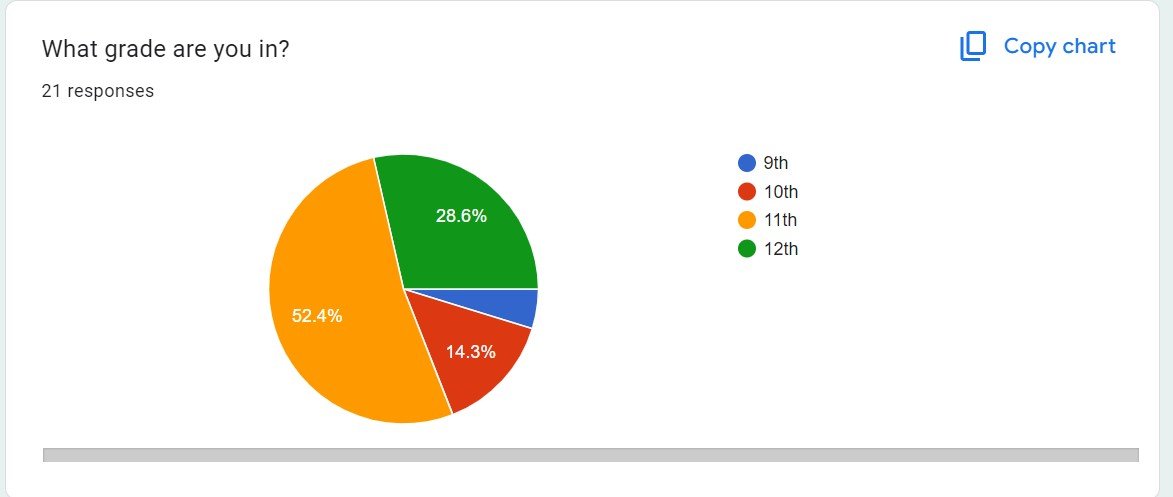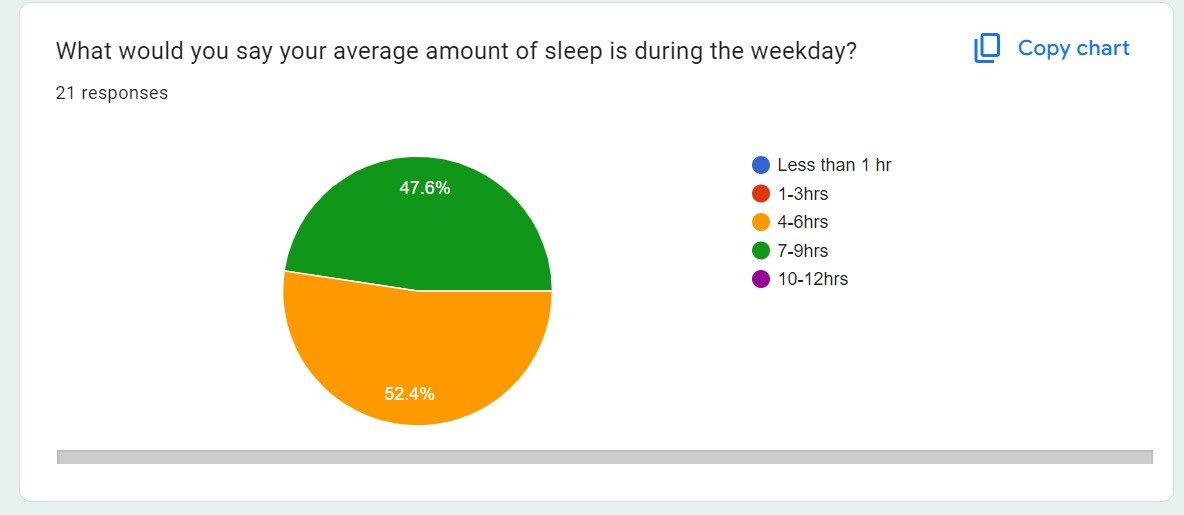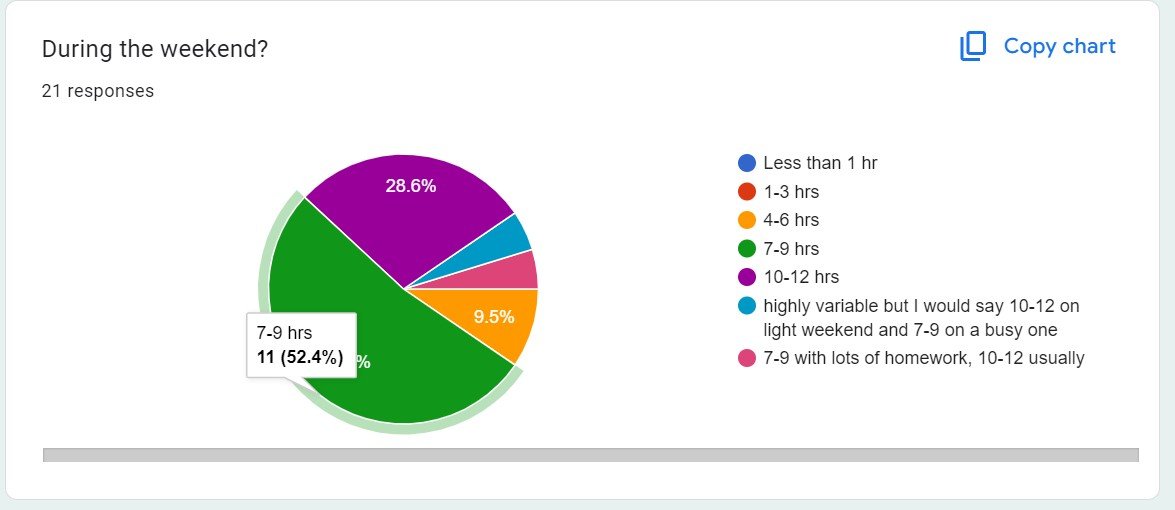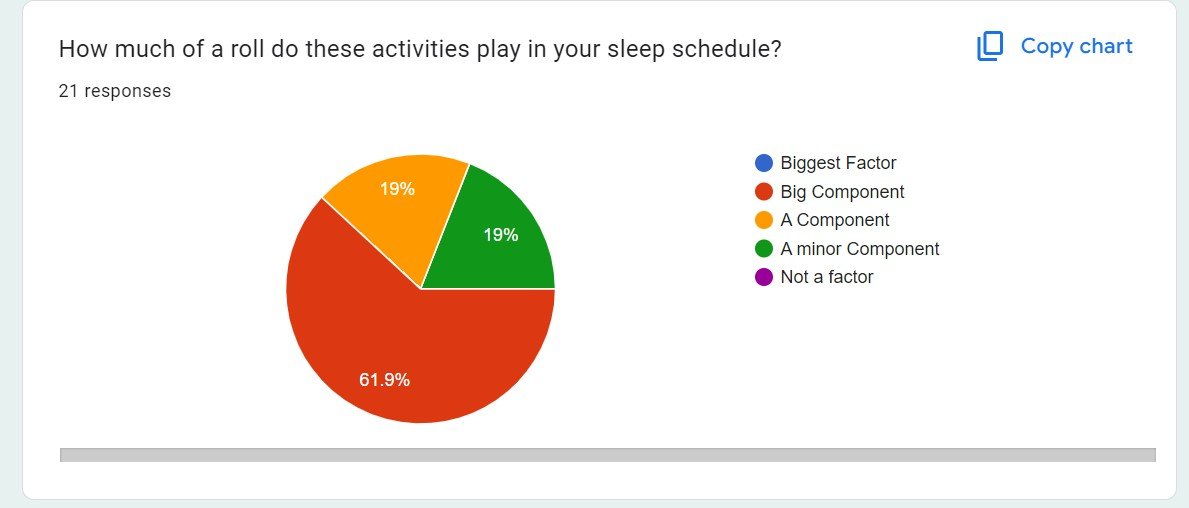OPINION: Why you should sleep way more than you do
By Isaiah Dada ‘25
Courtesy of Microsoft Bing AI Image Generator
I remember my freshman year of high school for a couple of things, memorable experiences with new people, taking classes based on interest, and feeling like I barely slept–something that I thought would be solved with better organization, and boy was I wrong.
I averaged around 7 hours of sleep at the lowest during Freshman year, and as those who’ve finished their freshman year tend to know, was more than enough to function on. So now as a Senior, I have more experience managing my sleep.
So, I want to convince you all that getting more sleep should be a priority for all students if it isn’t already. Take it from someone who has made it through school so far without caffeine, getting the right amount of sleep is one of the greatest investments you can give yourself.
But first, why does sleep matter? Well, according to Why Do We Need Sleep?, sleep is not just a period of inactivity, it’s a vital process that recharges our bodies and our minds. Without adequate amounts of sleep, our brains struggle to function properly, affecting our concentration capabilities and memory processing.
Sleep is particularly important in memory where it surprisingly yields some of its most significant benefits. Have you ever crammed in studying for a test the night before, ensuring you covered everything, and after a few hours of sleep felt exhausted and like you’ve forgotten everything you studied?
Why Sleep Matters: Benefits of Sleep | Harvard explains that your brain consolidates and organizes the information you consume throughout the day. This can aid greatly in retaining information and improving problem-solving skills, and creativity. So, the saying “Sleeping on it” has some legitimate weight.
In regards to physical health, sleep is the time when most of our growth hormones are released, which can aid in tissue recovery and body growth. Our immune system also recovers during sleep, the less sleep you get, the more susceptible you can be to certain diseases and infections. Finally, we conserve more energy during our sleep, leaving us refreshed afterward.
More benefits of getting adequate sleep can include improved cardiovascular health, as sleep helps us to regulate our blood pressure and reduces the risk of heart disease Sleep Foundation. Sleep also plays a crucial role in maintaining a healthy metabolism. For athletes and physically active individuals, sleep is essential for muscle recovery and performance optimization.
Prioritizing sleep isn’t just about feeling rested; it’s about investing in our overall health and happiness.
But what happens when you don’t get enough sleep? According to Cleveland Clinic, you can be susceptible to a host of health problems. When you don’t sleep enough short term, about a few days, it’s not as much of a big deal. You may feel tired, or lacking energy, and your cognition is impaired, but the impacts are numerous.
When we lose out on sleep our reaction speed may slow, our ability to logically reason is impaired and it can be harder to focus for long periods as well. This can be rectified by getting the proper amount of sleep the next night.
You have about a week of time as a grace period, where this shouldn’t have many long-term effects. However, after a week, it becomes much more of a concern.
Sleep deprivation can impact your mental health and emotional well-being. Increasing risks of anxiety and depression in some cases, as well as making you more susceptible to mood swings, and lack of emotional regulation., SleepFoundation states can in turn reduce your quality of life and social interactions.
Long-term risks tend to be less common, but lack of sleep has some correlation with increased risk of mortality from various causes, you have a higher likelihood of developing chronic conditions like diabetes and cardiovascular disease, and there can be potential long-term cognitive decline and in some cases, dementia.
When this lack of sleep is prolonged, sometimes our bodies will force us to sleep, in short bursts called microsleeps. SleepFoundation defines the concept of microsleeps as “falling asleep without planning to for a short period, such as for only a few seconds. Microsleeps can be very dangerous if they occur while a person is driving.”
Sleep Foundation even compared it to the danger of driving while under the influence saying “sleep deprivation leads to mental impairment that is similar to drunkenness”. Microsleeps while driving cause around 6,000 deadly crashes every year. We as teenagers who tend to have less driving experience than most other drivers are at particularly high risk and should plan accordingly if we’re excessively tired.
Additionally, I sent out a survey to around 49 upper school students who were somewhat randomly selected from the directory and received around 20 responses. Unfortunately, it was a rather small sample size. Here are the results.
Courtesy of Isaiah Dada.
Courtesy of Isaiah Dada
Around half of the students were juniors, who tend to have a larger homework load. Regardless, the trend seemed to be between 4-6 hours of sleep during the week, and 7-9 hours of sleep during the week.
When it came to weekends the responses were more interesting.
Courtesy of Isaiah Dada
I expected a higher amount of sleep than the week, and that seems to be the case here. Most can get around 7-9 hours of sleep, and some can get 10-12. The outliers remain with 4-6 hours of sleep.
As one might assume, a big component of the amount of sleep people could get was tied to their activities.
Courtesy of Isaiah Dada
Where just over half of the participants reported that their extracurricular activities played a big role in their sleep patterns, it's clear that the demands of high school students extend far beyond the classroom. Activities ranging from Mock Trial to part-time jobs can significantly affect Catlin students’ ability to maintain a healthy sleep schedule. In the words of Andy Han, an 11th-grader, “if you're not doing if you're doing extracurriculars and volunteering and all that,...even if you just have sports alone, it's extremely difficult to manage sleep schedule”.
This is a sentiment that seems to be shared amongst a large number of the student body. Activities take up significant portions of our days. I think there is value in having a hobby or club outside of the school environment, that gives you skills that are much harder to develop when in classes.
At the same time, I know the pain of having a game or club on the night before a project or test, the stress that ensues has few equals. I feel it’s beneficial to know where your limit is, burning out from lack of experience is not fun by any means, take it from someone who has been through it.
Unless it’s the end of the world, coming back well-rested to any event is one more variable that’s mostly in our control.
I was able to interview three 11th graders on how they were managing their sleep, Vishaka Priyan, Evan Zhang, and Andy Han. I got a mix of responses and they gave me some insight into their very different sleep schedules as well as advice for others who wish to improve their sleep.
But first, though, let's understand the overview of their routines, Priyan has a relatively set and clear routine for her nights saying, “I'd say that. I also say I have a good, like, wind-down routine. Like, every day I have the same routine.” She sets out her clothes for the next morning, has a skincare routine, takes vitamins, and packs her bag for school, before heading to sleep.
Zhang also has his own routine. When asked the same question, he said, “My typical bedtime routine is to do work until 12:25 am, or 12:20 am…. and then do snap streaks on Snapchat, and then brush my teeth”. He usually gets dinner as well in his average night routine.
Han has a rather unique schedule as opposed to the others, because of his job “I come at about 10 ish or so, and a shower, I eat…it's 11, and then I debate on whether going to sleep and waking up in the morning to do it or just do the homework right then and there”. He mentioned that he ends up doing the homework in the mornings, during co-cu and any other available times.
Regardless of their different sleeping habits and activities, when it came to reflection on what they would want to improve about their sleep schedules it all seemed to fall into generally similar groups.
Both Priyan and Zhang mentioned that they would like to get a larger amount of sleep. Priyan said, “Um, I tend like, although I don't need very much sleep, I know that generally sleep is like a lot [your health]”.
The respondents share a common desire for more consistent sleep schedules. As Andy Han succinctly puts it, “Consistency is key,” emphasizing his wish for “a full 8 hours in a row, not like lightly or broken up”. This sentiment echoed across the interviewees, with many recognizing the detrimental effects of irregular sleep patterns on their daily lives.
Reducing screen time before bed is another shared goal. Priyan notes “[We] generally should make a habit of not being on electronics before bed”. Making it known that the tech does have an impact on sleep quality.
Zhang expresses a similar desire, stating “I would hope to get off my laptop earlier”, recognizing that “having a screen open and looking at like the blue light… really makes your sleep a lot more difficult”.
In terms of their final thoughts and recommendations, Priyan recommended staying away from devices before bed. Distancing yourself so you can get the proper quality and amount of sleep is valuable.
She also recommends listening to something, like a podcast or audiobook can help people fall asleep more quickly.
Zhang recommends trying to get homework done earlier. He reasons that the earlier it gets done, the more time you have for other things in your life.
Han recommends melatonin gummies if you’re struggling with sleep. He also recommends that you get a warm glass of milk, it can help with relaxation before sleep.
I hope these are some other viable ways in which we can all improve our sleep habits. When we acknowledge the complex relationships between extracurricular activities and sleep, both students and staff can work in tandem to curate a well-rounded high school experience that doesn’t come at the expense of our precious 8 hours.
As well as, a lot of times as students, we underestimate the impact that sleep can have on us, and sometimes flex how little sleep we get, I’m subject to this as well. And how crucial it is for our daily capabilities and happiness.
Hopefully, this information and these suggestions, aid you in your journey of getting proper sleep. And to all those reading this in the late hours of the night and early morning, go to sleep. Your body will thank you for it.





